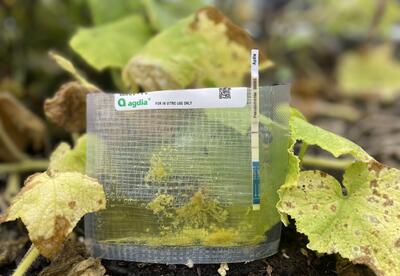
Image 1. Real-time detection of a Cms AmplifyRP XRT+ reaction using the AmpliFire isothermal fluorometer.
-- FOR IMMEDIATE RELEASE --
Agdia, Inc (Elkhart, IN) has commercialized a rapid and user-friendly DNA test kit, based on their AmplifyRP® XRT+ platform, for detection of Clavibacter michiganensis subsp. sepedonicus (Cms).
Cms is the causal agent of Bacterial ring rot (BRR) in potato. It is primarily spread through infected seed stock and / or through contaminated farm equipment. Cms is a zero-tolerance pathogen in United States seed potato certification programs and can have substantial financial implications for a grower if their stock or field is found to be Cms positive.
AmplifyRP XRT+ for Cms is an isothermal amplification technology that utilizes recombinase polymerase amplification (RPA) to rapidly amplify and detect fragments of Cms DNA. It does so with the same level of sensitivity and specificity as laboratory-based PCR methods but offers some clear advantages. AmplifyRP XRT+ can be used with crude sample extracts and does not require nucleic acid purification which saves time and money on nucleic acid extraction kits. Impressively, the total assay time is approximately 20 minutes, including sample preparation. This is a stark contrast to PCR methods which can take hours or days to complete. PCR analysis must also be completed in a laboratory by skilled technicians, whereas AmplifyRP XRT+ can be performed on-site.
Agdia has validated their new assay against a collection of more than 30 Cms strains and 24 other strains of plant pathogenic bacteria. During their analysis the assay classified 100% of the isolates correctly as either positive or negative respectively. In comparison to commonly used PCR methods, such as those using CelA and Cms50 primer sets, the AmplifyRP XRT+ assay was equally as sensitive analytically.
Agdia’s AmplifyRP XRT+ platform is highly flexible and provides results in real-time using a portable fluorometer called the AmpliFire® (Above right - Image 1). Alternatively, the assay can be performed using a small portable heat block with results being visualized post-amplification in an Amplicon Detection Chamber. This allows end-users who don’t want to invest in a fluorometer an alternative method of running the test.
Agdia’s AmplifyRP XRT+ kit for Cms includes 48 reactions and the necessary buffers to perform the test. If performing the test as a real-time assay, the end-user will need to purchase the AmpliFire separately. The AmpliFire is battery operated and has a small footprint, making it possible to test in remote locations. Setup is simple because all the assay parameters are loaded into the AmpliFire using a barcode that is affixed to the test packaging. It also has a large, intuitive, touch screen interface that is used to initiate reactions and view results. More information on the AmpliFire can be found on Agdia’s website.

If the end-user runs the test as an end-point detection assay they will need to purchase Amplicon Detection Chambers (Bottom right - Image 2), as well as a starter pack, separately. The starter pack includes a heat block (necessary for the amplification step) as well as pipettes, pipette tips, and a tube rack.
About Agdia
A leading provider of diagnostic solutions for agriculture, Agdia, Inc. has been serving plant breeders, propagators, growers, universities, and private testing laboratories since 1981. The company offers a comprehensive portfolio of validated, easy-to-use diagnostics for identifying plant pathogens, hormones, and transgenic traits, as well as in-house testing services. Agdia’s quality management system is ISO 9001:2015 certified and their Testing Services Laboratory is ISO 17025:2005 accredited.
About AmplifyRP
AmplifyRP XRT+ Test Kits employ recombinase polymerase amplification (RPA) technology licensed by Agdia, Inc (licensee) from TwistDx Limited, U.K (licensor). Use of the RPA process and probe technologies are protected by US patents 7,270,981 B2, 7,399,590 B2, 7,435,561 B2, 7,485,428 B2 and foreign equivalents in addition to pending patents.
AmplifyRP® is a registered trademark of Agdia, Inc.
AmpliFire® is a registered trademark of Douglas Scientific.
###





